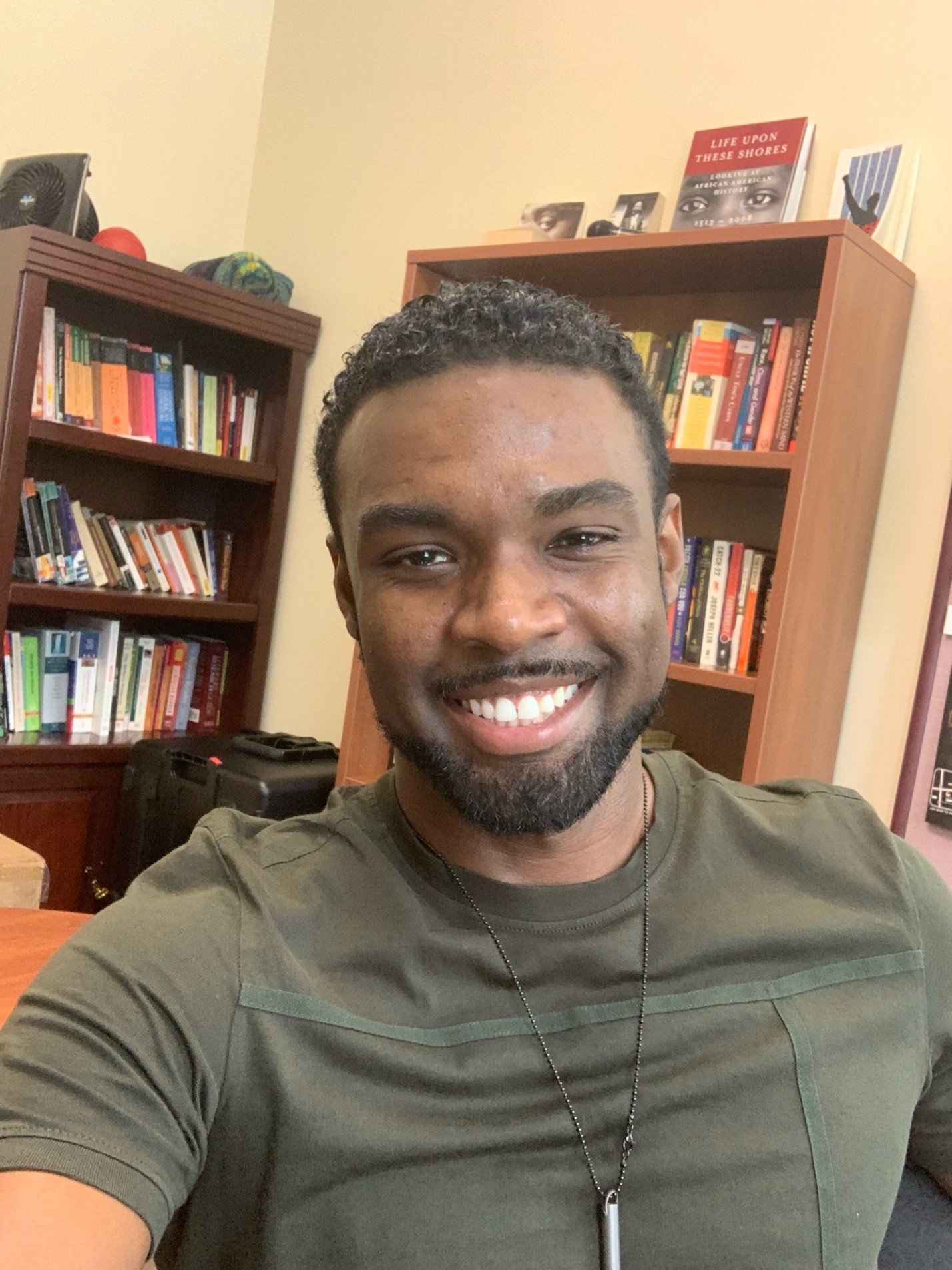Kirk Cochran

Name:
Kirk Cochran Jr.
MSU Degree:
M.A. in English, 2013
Any Other Degrees:
B.A. in English, Alcorn State University, 2011
Favorite Memories of Being an English Major:
I made many cherished memories as a graduate English major at Mississippi State, from bingeing Shakespeare theater productions to poker nights with Cory Lockhart and Taylor Garner, to spending countless hours scouring the stacks in the library. Above all, what stands out the most is the intellectual atmosphere that permeated all of these experiences. Even in moments of fun, I was thinking and growing. One highlight of my studies was in EN 6533, studying Milton with Dr. Lara Dodds. This course challenged me to engage with texts on a deeper scholarly level and marked a turning point in my intellectual growth. Dr. Dodds fostered an environment of intellectual rigor, encouraged curiosity, and granted me the freedom to explore complex ideas and sharpen my critical thinking. Studying the themes of authority, rebellion, and freedom in Paradise Lost, especially in connection to the political landscape of the time, was particularly rewarding.
Current Position:
I am a Professor of English at Lone Star College, Montgomery, in The Woodlands, TX.
When you graduated with a degree in English from MSU, what were your plans for your future? Have your career path mostly realized those early plans, or have you discovered new goals along the way?
Initially, I aimed to pursue a Ph.D. in English Literature and become a professor. However, my career path shifted after joining Teach for America (TFA) in 2014, where I taught AP English and Dual Credit English at Spring Woods High School. This experience altered my career trajectory, leading me to my current role as a professor at Lone Star College. Though my focus has evolved, my aspiration to teach and research remains. My passion for history guides my personal research interests, and I hope to eventually pursue a Ph.D. in Composition and Rhetoric, focusing on the historical impact of propaganda on radical black grassroots movements, from abolition to the American Descendants of Slavery (ADOS) movement.
What is your current occupation, and what does your work mostly consist of?
As a Professor of English at Lone Star College, my primary focus is teaching Composition and Rhetoric, a field I’ve grown to love. I also teach developmental English. Beyond teaching, I serve as co-editor of the WAC Journal (Writing Across the Curriculum) and work with the Faculty Resource Center to provide professional development to my colleagues. I am currently an AI Fellow, assisting instructors in integrating AI tools into the classroom and teaching them how to guide students in using AI ethically and effectively. I also collaborate with the college's Writing Center to host workshops and support students.
Which skills that you learned as an English major do you use most in your job?
My ability to analyze and creatively solve problems is essential in navigating the ever-changing landscape of education and technology. These skills have allowed me to adapt to new challenges and continue growing. I also frequently use the research skills I developed during my English studies to continue my personal exploration of Black American—ADOS—history, which is a key area of interest for me.
What additional skills did you need to learn in order to do your job, and how did you learn them?
MSU provided a strong foundation for my career, and I further developed my teaching skills through the Teach for America program, which focused heavily on pedagogy and transformative teaching. In addition, I have taught myself new technologies to stay current with the evolving educational tools available to students and instructors.
Are there common misconceptions about your career field, which current English majors might share, that you have learned the truth about?
A common misconception about teaching at a community college is that it offers fewer career opportunities than teaching at a university. Although it is arguably less prestigious, being a community college professor is highly rewarding. These positions offer competitive pay and there are ample opportunities for research, fellowships, and sabbaticals. The main difference is a slightly heavier teaching load and a broader range of student demographics, including non-traditional and developmental students.
In what ways does your career enrich your life and help you achieve your personal and professional goals?
Teaching challenges me intellectually and pushes me to adapt to diverse student populations. The connections I’ve made with my students are deeply meaningful, and knowing I’ve positively impacted their lives is incredibly fulfilling. My career keeps me in a constant state of growth and reminds me to maintain a student’s mindset—being open minded, curious, and always learning. The flexibility of my schedule also allows me to pursue personal research and work toward my long-term goals.
What advice do you have for undergraduate English majors right now who might want to follow the career path you did?
If I could offer advice for others who might want to follow this career path, I would say keep reading, studying, and analyzing the world around you; don’t stop after you get your degree(s). Be open to learning and growing, especially when it comes to pedagogy and technology. Learning to teach takes time, and it’s a skill you’ll always need to revisit so be patient with yourself and embrace the role of being a lifelong student.
Language in this document was optimized with ChatGPT.
[Updated October 2024]